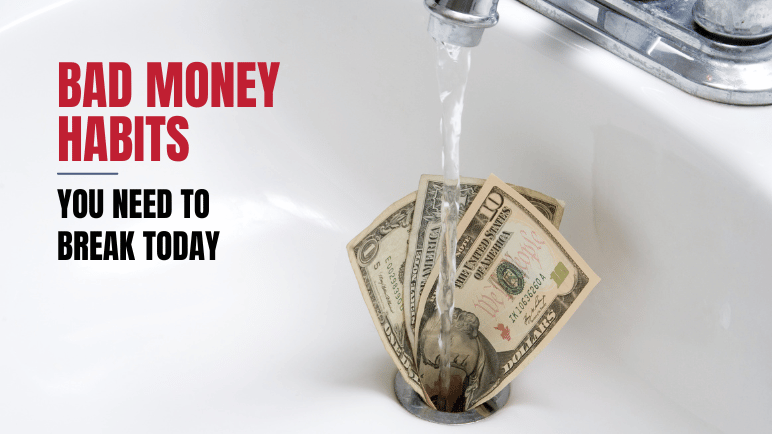
Most of us are guilty of having a spending mentality in which we continue to make purchases we may not even need. Although we might think we should be able to justify every expense or purchase we make as long as we work hard and make a lot of money, but the reality is that it’s never a good idea to buy anything just because we want it.
Our wants, needs, and desires will rise as our income increases because we think about what’ll reimburse us for our earnings. There are always hidden costs and consequences attached – things that can come back and bite us later on.
Here are five bad money habits you need to break. The sooner you stop them, the sooner they will move you closer to your financial goals.
Taking Out Payday Loans
Taking payday loans has been a problem for some because of overspending. There may come the point that even with your money in your hands, you still overspend because of the temptation to spend more than you can afford and eventually end up in debt.
One of the reasons people take out loans is because they overspend or don’t have enough money to meet their expenses. This habit is harmful, as spending too much causes you to get into debt and have difficulty paying it off. It can also create more financial stress on you if you continue borrowing money. If you want to end this bad habit, keep your budget always and avoid spending too much on things that are not necessary.
Spending More than You Earn
The reason why it’s hard for an individual to invest is that they’re spending too much of what they earn. I’ve known someone that can lose their skills in budgeting when they plan to invest or purchase a property. It could be because of irresponsible handling of money, lack of adequate knowledge about how much to pay for things, or not knowing when to part with the saved money.
One way to achieve that freedom is to keep your spending tight, especially when it comes to buying things or new investments that can boost your income. Freedom from financial obligation is a euphoric feeling. It’s the knowledge that you can spend your money to fit whatever hobby, travel, or vacation you want without fear of debt. But one thing you need is discipline in your spending habits.
Not Being Prepared for an Emergency
We can never tell when we’ll need anything so desperately in a crisis, thus being prepared for everything is now the most crucial thing. Sometimes, we mistakenly feel that there will be enough money left over for us in case of an emergency since we believe we have more money to spend on something. We must constantly be reminded of this priority. Because it already falls within our fixed expenses rather than because it is necessary.
Impulsive Buying
We worry about money for a variety of reasons, including our tendency to act impulsively. We will spend more money than we intended to if we notice eye-catching items or purchase unneeded stuff because they are in style. Spending money on items that will provide a return on our investment and allow us to maintain our financial stability is much more prudent for a wise person.
There is a chance that you may increase the amount of money you are currently making if you invest today. As long as you make the appropriate investment, starting today is not impossible. Whether you work as a salesperson, a worker, or an employee, as long as you are confident in the investments you are making, you will undoubtedly have a pocket full of cash.
Failure to Save Money
Why do some of us fail in saving money from our income? We don’t know where the money goes. Many variables could cause us to miss our savings opportunities. If you have trouble budgeting due to minimum wage, an important expense for you like going out with friends or family, or impulsive buying, then you might find yourself having less money at the end of every month.
Poor budgeting is the cause of the failure of many people to save money from their income. Making a list of fixed expenses would help a lot to decrease the problem of bad money habits which could lead us to financial freedom. Since budgeting is a key part of saving, we must see what’s holding us back from our own financial goals.

